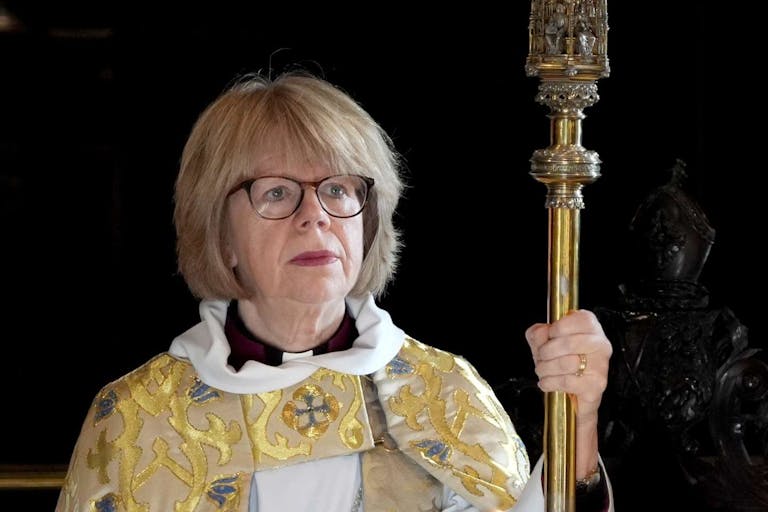
New Archbishop of Canterbury warns of danger in legalizing assisted suicide
Nancy Flanders
·
Preemie dies after on-call doc refuses to show up, insists on updates through WhatsApp
A hospital in the United Kingdom has been reprimanded after it was revealed that an on-call doctor chose to communicate with staff about a premature baby using WhatsApp, rather than tending to the baby in person.
A press release from the law firm representing the parents, who remained unnamed, stated that throughout the mother’s pregnancy, she had experienced bleeding and other complications, but staff at Borders General Hospital in Melrose repeatedly said everything was fine. But then, at 31 weeks gestation, the mother went into labor, and their son was born. Despite the mother’s previous complications and the baby’s prematurity, they were not transferred to the Royal Infirmary of Edinburgh for the birth, even though that hospital has a neonatal intensive care unit (NICU), and Borders General Hospital does not. Furthermore, as the mother was about to give birth, staff forced her to undergo a second ultrasound, meaning there was an unnecessary delay of nine crucial minutes before the baby was delivered.
Tragically, the baby died five days after being born.
The National Health Service (NHS) trust conducted a significant adverse event review, which found that the on-call specialist, who was just minutes away from the hospital, refused to come to the hospital in person and instead, was monitoring the baby’s vitals through WhatsApp, a social media platform.
READ: Pro-abortion ER doctor describes dangerously negligent ectopic pregnancy care
“We have found this really shocking. We didn’t know anything about a consultant who should have been present until we read the SAER report. It has been pretty devastating to find this out,” the mother said. “Aside from the fact they’re using WhatsApp anyway, which is definitely not the way medical information should be shared between professionals, I know from doing personal training sessions in this hospital previously how bad the phone signal and WiFi are. It’s unbelievable to think they were sending such vital information this way.”
The father added that they don’t want this to happen to any other family:
You put your trust in the professionals and presume that the right people are in the right place at the right time.
While the midwives were always helpful and concerned, more senior staff were less so. We had no idea the consultant who should have been here, who was on the site and only minutes’ walk away, was being sent critical live data by WhatsApp, and that there was this internal battle going on in trying to get them to come and assess my wife in person. We knew nothing about this at the time, and it was very hard to read in the SAER report.
We are so let down by this. We know the consultant was supposed to be close by, just across a car park from where we were, yet wouldn’t come to see us or even accept information by email, only by WhatsApp. This cannot be allowed to happen again to any other family.
Health Improvement Scotland is now carrying out a review of the maternity services at NHS Borders, which the couple applauded. “We want things to change, and we want people to receive the care they need, when they need it,” the mother said. “We are doing this for our son and other mums and dads. We want to make sure this doesn’t happen again.”
A similar instance happened to another premature baby born in 2019; last year, an inquest confirmed that this baby could have survived had she been given proper care. Furthermore, a review of that particular NHS hospital found that one in three stillbirths could have been avoided had serious mistakes not been made. Other investigations have been conducted into the deaths of more premature babies in Scotland, as there had been a spike in neonatal death rates overall.
Whistleblowers have come forward to say that many of these deaths could have been avoided, and numerous health boards have received poor ratings, ranking 5% higher than the UK average for their group. Yet the government is not taking the problem seriously enough, according to Alex Cole-Hamilton, a Scottish MP.
“There can be few more acute priorities for a government and its ministers than uncovering why the death rate among newborn babies has spiked,” he said. “The Government’s response so far has been tepid and evasive. Alongside filing written parliamentary questions, this is now the third time I have written to you requesting that the Scottish Government answers questions in public on this matter.”
Another MP, Naz Shah, is likewise demanding answers:
It is unimaginable, the pain that those parents are going through, but the idea those those deaths could have been prevented. There are children that have died and that is a clear failure of leadership.
My heart goes out to those families that have lost their children. There are parents out grieving for their children, for deaths that could have been avoided. These were children in a neonatal unit which should have extra precautions. Those precautions were not taken and those deaths were actually avoidable. It’s absolutely beyond horrific.
What measures will be put in place to make sure that this never happens again, that we do not have another grieving parent knowing that their child should still be alive? We are in Great Britain, we are not in a third world country where you cannot follow the basic hygiene of washing hands, of making sure you change your gloves, making sure those steps are in place, taking those basic steps.
Live Action News is pro-life news and commentary from a pro-life perspective.
Contact editor@liveaction.org for questions, corrections, or if you are seeking permission to reprint any Live Action News content.
Guest Articles: To submit a guest article to Live Action News, email editor@liveaction.org with an attached Word document of 800-1000 words. Please also attach any photos relevant to your submission if applicable. If your submission is accepted for publication, you will be notified within three weeks. Guest articles are not compensated (see our Open License Agreement). Thank you for your interest in Live Action News!

Nancy Flanders
·
Politics
Nancy Flanders
·
Politics
Rebecca Oas, Ph.D.
·
Abortion Pill
Angeline Tan
·
International
Bridget Sielicki
·
International
Angeline Tan
·
Analysis
Cassy Cooke
·
Activism
Cassy Cooke
·
Pop Culture
Cassy Cooke
·
International
Cassy Cooke
·
Analysis
Cassy Cooke
·